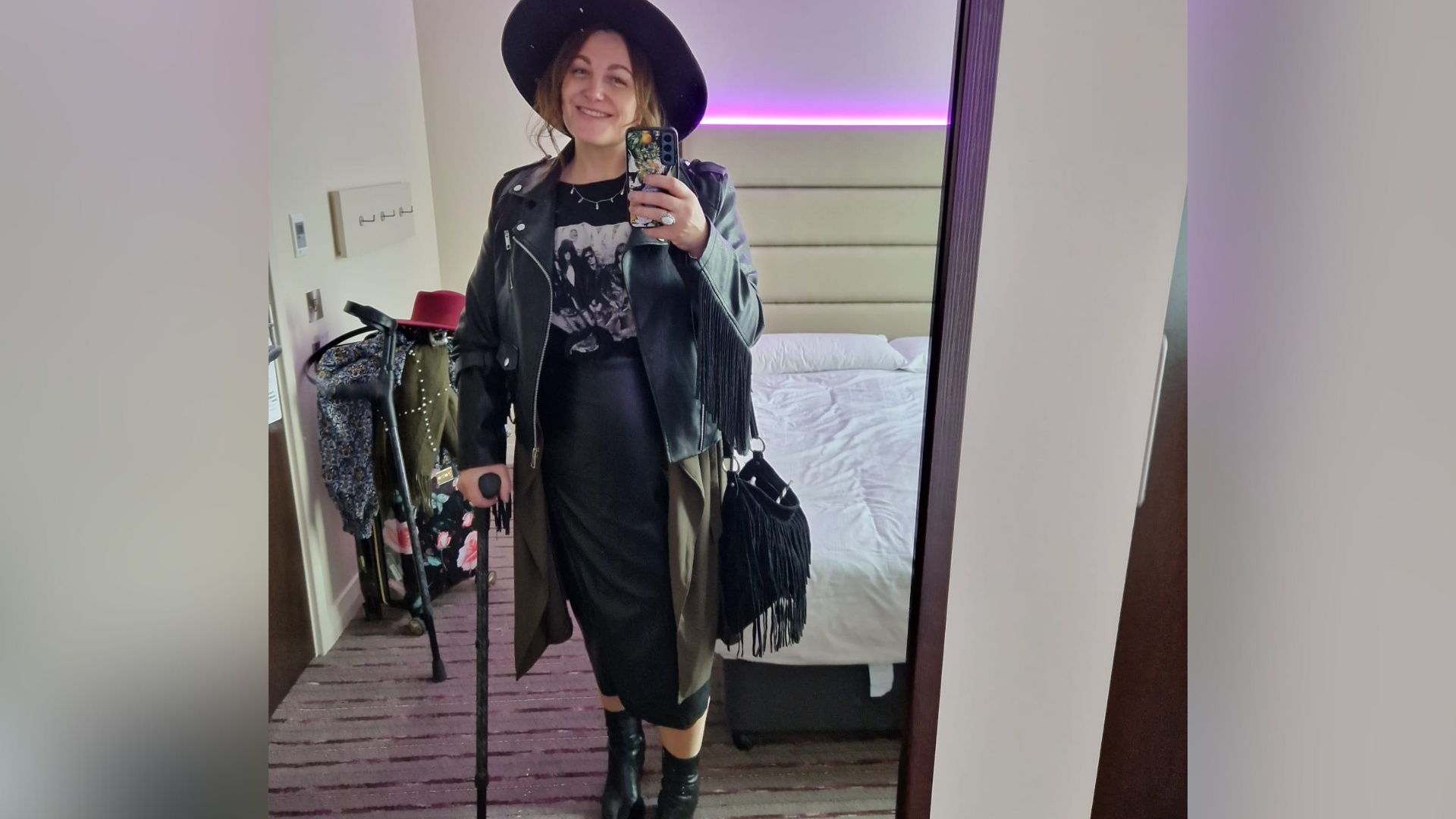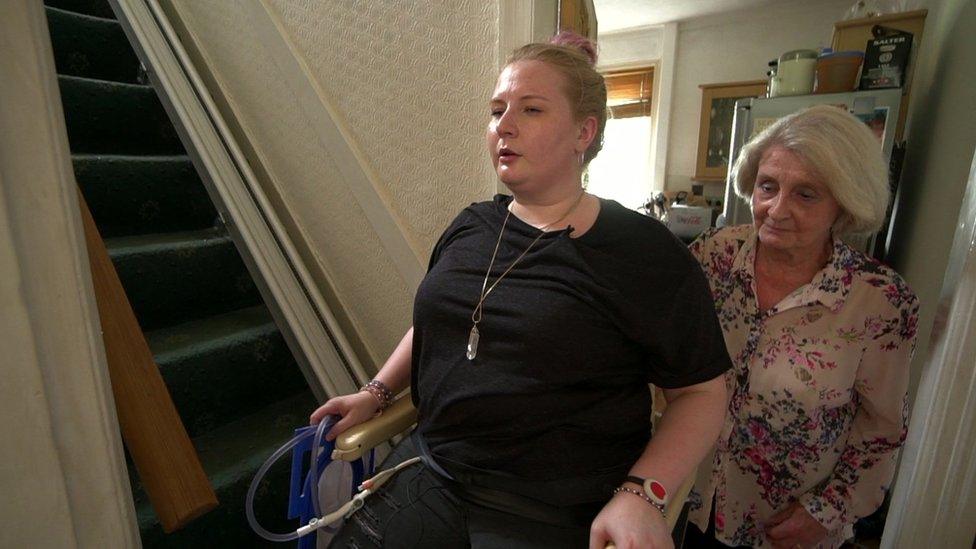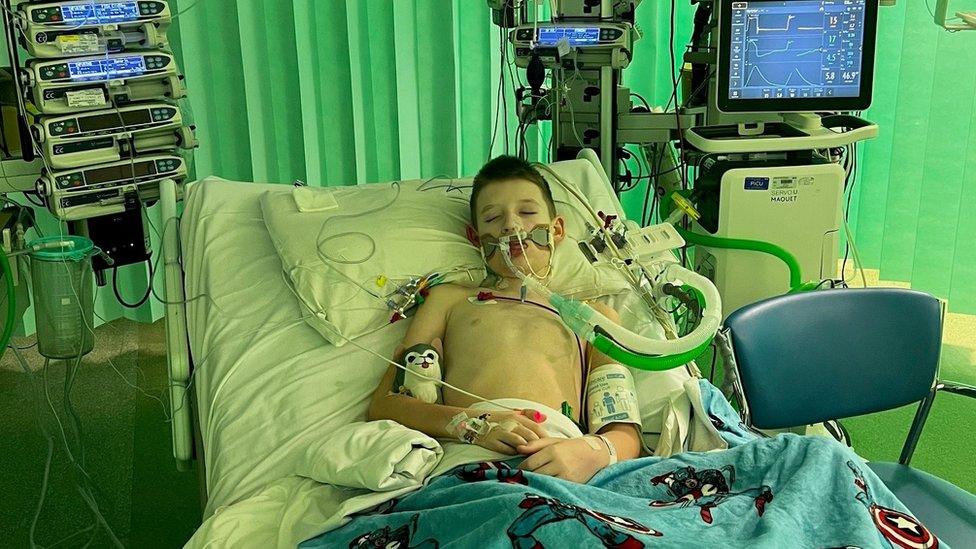'Delayed treatment has led to my disability'

Toni-Claire Miller has Cauda Equina Syndrome, a rare condition where all the nerves in the lower back become severely compressed
- Published
A woman living with a rare spinal condition is calling for improved training for healthcare professionals to avoid failed diagnoses.
Toni-Claire Miller has Cauda Equina Syndrome (CES), a condition where all the nerves in the lower back become severely compressed.
The 39-year-old, from Sittingbourne, Kent, said she has permanent paralysis of her bladder and bowel and mobility issues after not being physically examined at three appointments with different GPs.
NHS England has been approached for comment.
Ms Miller said she began experiencing severe back and leg pain, numbness and difficulties with bladder and bowel function back in July 2018.
She was told in her second GP appointment she would be referred for an MRI, which was mistakenly delayed due to a scheduling error, she said.
Ms Miller said her condition deteriorated and her son, who was six at the time, found her in the bathroom unable to move.
He contacted his grandmother, and Ms Miller was rushed to A&E where an MRI scan revealed a ruptured disc compressing her spinal nerves.
Ms Miller underwent surgery but said delay in her treatment led to her developing CES.
'Urgency'
According to the NHS, CES symptoms include sciatica on both sides, severe weakness or numbness in both legs and difficulty in bladder and bowel control.
Ms Miller said she believed that with better-trained staff and urgent access to MRI scans, her disability "could have been prevented".
She said: "My aim isn't to blame anyone, but to make sure everyone – medical professionals and members of the public – understand the urgency of these symptoms."
Solicitor Nadia Krueger-Young, from law firm Stewarts, said that there needed to be "greater education and awareness around the condition".
She said: "There is a drive for spinal injury education in the NHS and growing recognition that it hasn't always been sufficient."
Follow BBC Kent on Facebook, external, on X, external, and on Instagram, external. Send your story ideas to southeasttoday@bbc.co.uk, external or WhatsApp us on 08081 002250.
Related topics
- Published19 August 2019

- Published9 January 2024
